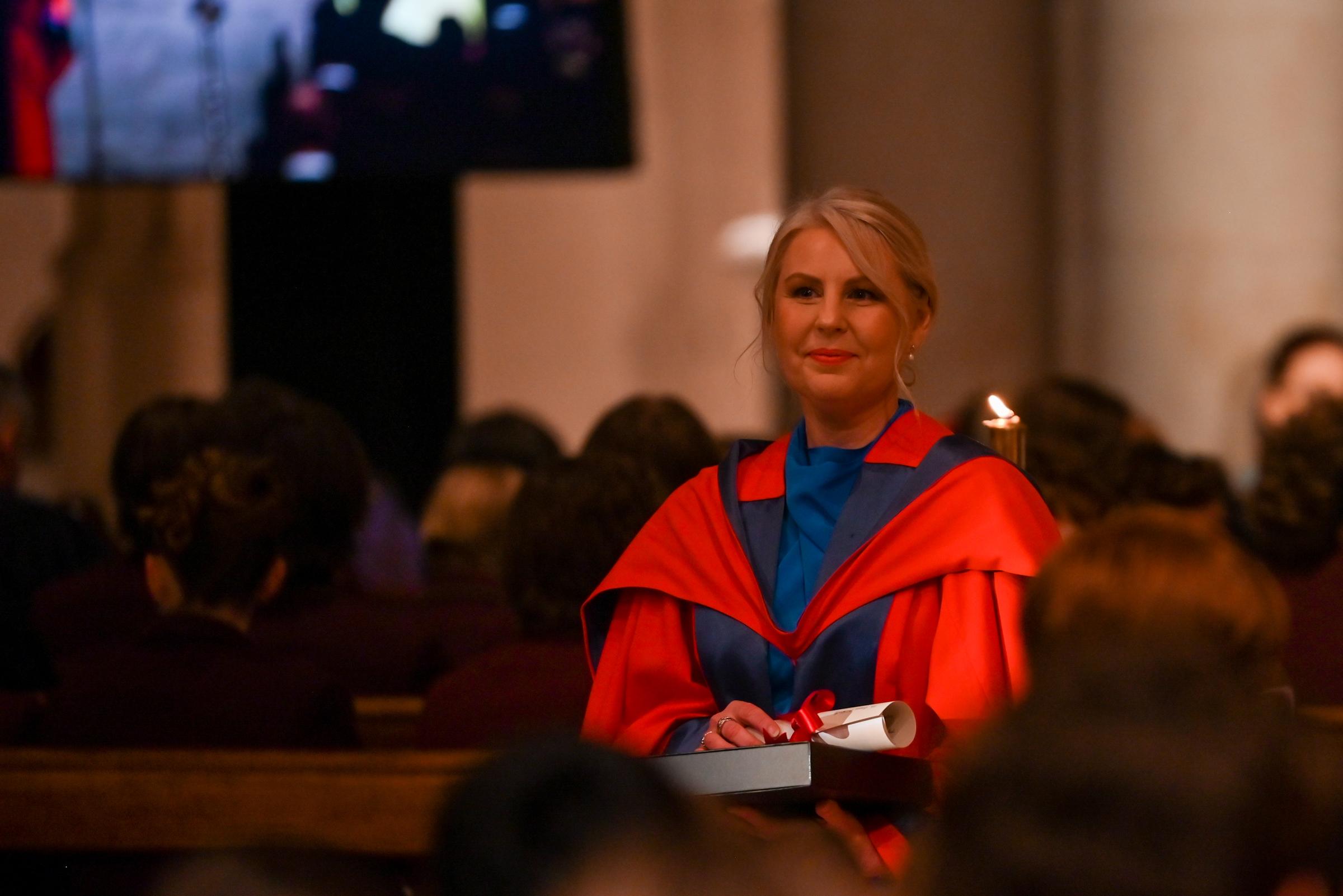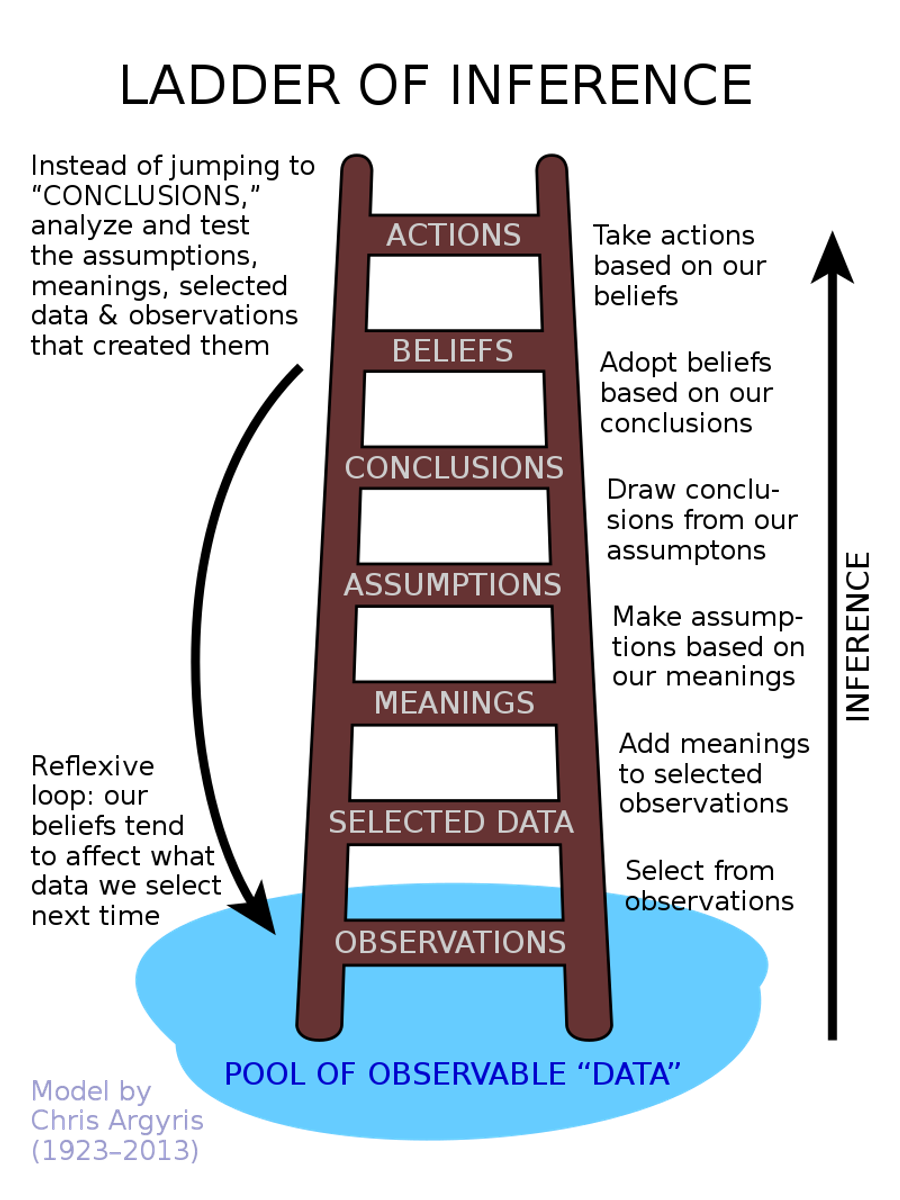From the Principal

At a recent Principal’s Assembly in our Senior School, I shared with students a fascinating concept called the 'Ladder of Inference', which helps us to understand how our observations transform into beliefs and actions. First developed by psychologist and former Harvard professor Chris Argyris in 1970, it is a tool that has stood the test of time and is often referred to by educator and author Tracey Ezard, who has been doing wonderful work with our staff as we continue to enhance our school’s culture.
I explained to the students that we all climb the Ladder of Inference multiple times each day, often without even realising it, as we make observations, construct interpretations, develop assumptions, form beliefs and ultimately act based on those beliefs. We make these mental steps in the blink of an eye, but they significantly influence the way we perceive and respond to the world around us. I gave an example of how a fleeting observation can lead to a misinformed interpretation, an incorrect assumption, a negative belief and then a potentially damaging action. What’s more, in a phenomenon known as the ‘reflexive loop’, those negative beliefs actually have the power to influence what we observe in the future, reinforcing our harmful preconceptions and preventing us from forming new interpretations.
Unfortunately, criticism, judgement and hasty conclusions can come all too easily to us humans, thanks to our primal instinct to fear or judge when we encounter something new or someone who is different to us. Empathy and compassion are evolved states of being that require us to rise above those instincts. It requires far more effort to question our assumptions, consider alternative viewpoints, and embrace a broader perspective – and these are habits that must be built over time and regularly practised throughout our lives. This is why our curriculum at Girton Grammar focuses on nurturing our students’ emotional capabilities alongside the academic. We are committed to offering social and emotional learning (SEL) at every stage of the educational journey, and have been working on a number of exciting developments that are unfolding across our Junior and Senior Schools this year.
Within our Junior School, you may recall that a group of staff members visited Yale University late last year. There they completed specialised training with the experts at the Yale Center for Emotional Intelligence, giving them valuable insights and strategies to enrich our RULER program. Drawing on those learnings, Junior School staff have now started to implement targeted activities and practices to strengthen the integration of RULER across all aspects of the curriculum and school life. Key areas of focus for 2024 include combining individual class charters to create an all-encompassing charter for each year level; providing comprehensive RULER training for new students and staff members; and enhancing the support systems and resources available to help students develop self-awareness and self-regulation. In addition, we are incredibly excited to welcome the founding director of the Yale Center for Emotional Intelligence, Dr Marc Brackett, to Girton in May. His visit will offer valuable insights and inspiration as we continue to elevate our RULER and SEL programs.
In our Senior School, this year we are proud to have introduced dedicated time for SEL instruction within our new timetable. During Co-Connect sessions each Tuesday, our students will engage in an enriching program that has been specifically developed for Girton by our SEL Coordinator, Ms Jo Christie. This term, students will be working together to develop a tailored charter that will help them to establish and maintain a positive emotional environment within their House Tutor groups. Later in the term, they will be completing practical, thought-provoking learning activities on the topics of resilience, mindfulness and self-awareness, recording their personal reflections in an SEL journal.
I feel incredibly excited about these developments within our SEL program at Girton, and I am looking forward to seeing the positive effects they will have on our students. Studies show that students who receive high-quality, explicit SEL instruction demonstrate improved attitudes, behaviours, interpersonal skills and emotional wellbeing, as well as higher academic performance. In world that is filled with division, our aim is to empower students to excel not just academically but emotionally, so they can rise above the evolutionary instinct to fear or judge and instead forge a path of empathy, respect and kindness that will leave a positive impact. It is our privilege to work with you, their parents and carers, to show them the way.
Dr Emma O'Rielly
Principal

